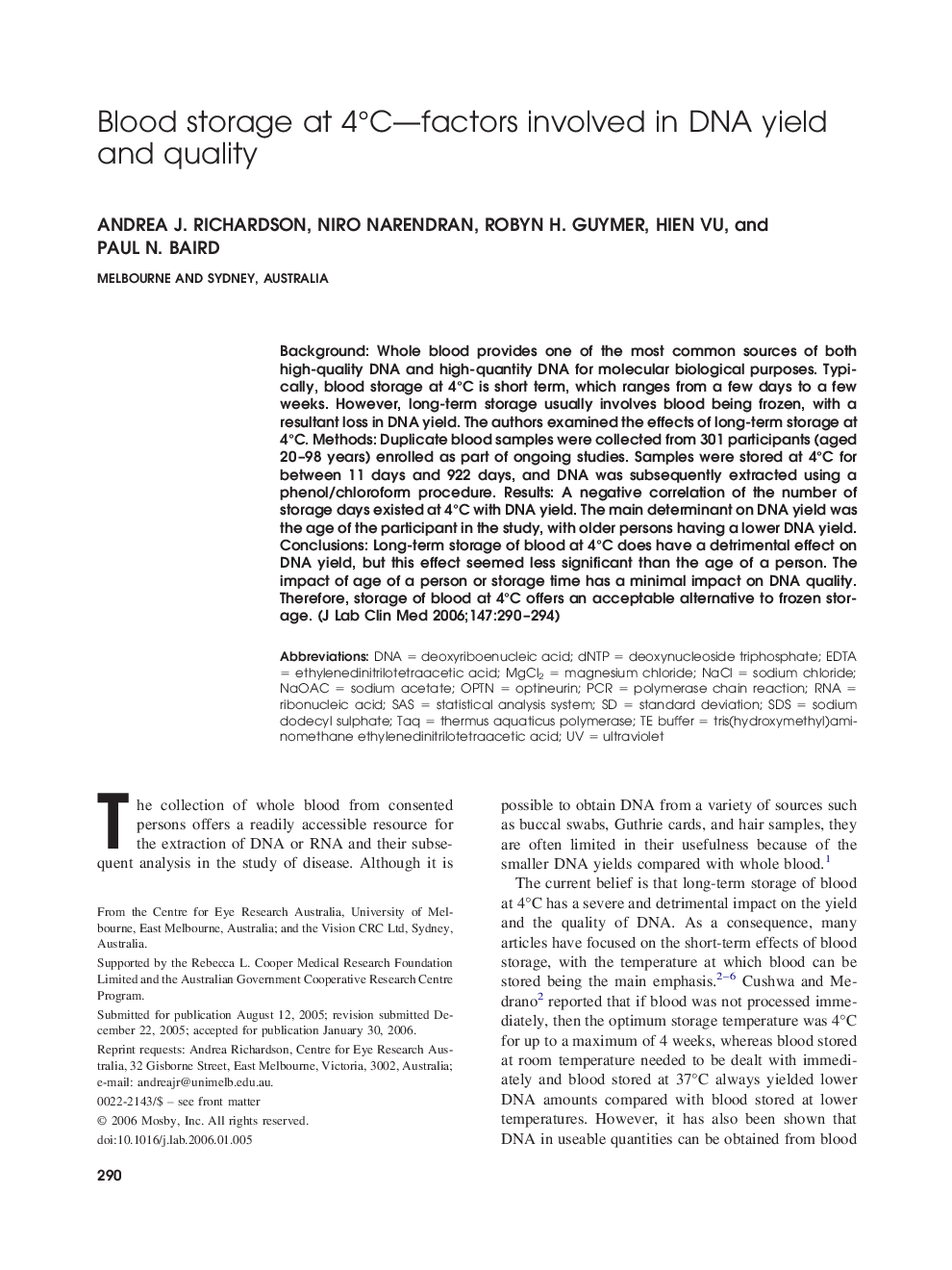| Article ID | Journal | Published Year | Pages | File Type |
|---|---|---|---|---|
| 3481964 | Journal of Laboratory and Clinical Medicine | 2006 | 5 Pages |
Background: Whole blood provides one of the most common sources of both high-quality DNA and high-quantity DNA for molecular biological purposes. Typically, blood storage at 4°C is short term, which ranges from a few days to a few weeks. However, long-term storage usually involves blood being frozen, with a resultant loss in DNA yield. The authors examined the effects of long-term storage at 4°C. Methods: Duplicate blood samples were collected from 301 participants (aged 20–98 years) enrolled as part of ongoing studies. Samples were stored at 4°C for between 11 days and 922 days, and DNA was subsequently extracted using a phenol/chloroform procedure. Results: A negative correlation of the number of storage days existed at 4°C with DNA yield. The main determinant on DNA yield was the age of the participant in the study, with older persons having a lower DNA yield. Conclusions: Long-term storage of blood at 4°C does have a detrimental effect on DNA yield, but this effect seemed less significant than the age of a person. The impact of age of a person or storage time has a minimal impact on DNA quality. Therefore, storage of blood at 4°C offers an acceptable alternative to frozen storage.
